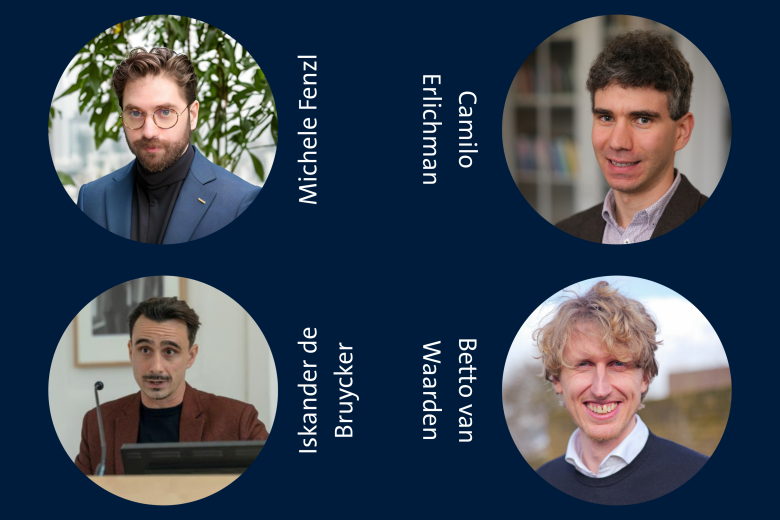Diverse or divided: student inclusivity in tutorial groups
At UM, we see diversity neither as bullet-point nor silver bullet - its meaning, importance and implementation are subject of an ongoing conversation in our community. Every day, our staff and students are working in many different ways on making UM a more inclusive organization. "All-inclusive" introduces you to some of those initiatives, in this case: student inclusivity in tutorial groups.
We are international and interactive – but are we inclusive? With more than half of our students coming from abroad, we are the most international university in the Netherlands. This fits our education system well, as Problem Based Learning teaches students different ways of seeing and doing things, and in the International Classroom they experience different cultures and values. But are there potential pitfalls inherent in our system?
Research has repeatedly confirmed the importance of diversity, but its inarguable advantages shouldn’t belie potential problems. Diversity in the International Classroom occasionally fails to deliver: while it can instigate creative discussions and out-of-the-box thinking, it can also lead to miscommunication, friction, or outright conflict. One of the key challenges UM’s small-scale education system faces is making sure the positive effects outweigh potential disruption.
The sweet spot – different enough, not too different
A key point in this debate is how we look at diversity – is this about e.g. gender, ethnicity, or age, or gender, and ethnicity, and age, all happening at the same time? It is the multitude of diversity characteristics in students that matters.
Research on work group diversity confirms that the cumulative effect of different diversity attributes is a key factor. Given marginal differences between students (e.g., in terms of ethnicity), diversity is likely to add value to group learning by providing different inputs. Sharing a number of traits establishes “common ground” for discussion, making it easier for students to speak up. However, an accumulation of differences (e.g., confronting older, male, Western European students with a young, female exchange student) may negatively affect the quality and quantity of interactions: establishing mutual trust and affinity becomes more difficult, contributing to the group more daunting.
Differences building upon differences can also create an “us” and “them” divide, marginalizing these (groups of) students. This can lead to isolation and decreased individual well-being, which negatively impacts group performance. Since learning outcomes and student welfare in a small-scale learning environment depend on group processes, the “fit” between students is a very important determinant of learning outcomes, and hence, something we as a university should consider and care about.
True to our principles – but always critical
Reducing diversity in an attempt to increase inclusivity in tutorial groups would deny everything our university stands for. Still, we should reconceptualise our notion of diversity and be mindful of how it might constitute a barrier between students, e.g. in tutorial (sub)groups. Moreover, group leaders (i.e., tutors) are vital in fostering balanced group dynamics by stimulating involvement and group responsibilities, and likely form an important part of the solution.
A research project exploring the impact of student isolation on individual and group performance, as well as the role of tutors, is currently carried out as part of the SBE Culture, Ethics and Leadership research theme. The aim is to understand the role of diversity under optimal learning conditions, thereby identifying strategies and best practices to create an open, inclusive learning environment. The findings are to inform tutor training and education policies, and improve the quality of education in our PBL system.
Also read
-
Four FASoS researchers awarded NWO XS grants
How do lobbyists use disinformation to sway policymakers? Who gets to shape the historical narrative of occupation and violence? Does growing inequality change the way citizens think about politics? And how have politicians defended “truth” across a century of media revolutions?
-
Reducing the Digital Divide: Empowering Students to Train, Evaluate, and Use AI Text Models
The Maastricht Law and Tech Lab, together with the Brightlands Institute for Smart Society (BISS), obtained a € 100.000 a Comenius Senior Teaching Fellow grant.
-
Green school playgrounds boost concentration and wellbeing
Children at schools with green playgrounds are better able to concentrate and display more social behaviour. This is the conclusion of a follow-up study within the long-running project The Healthy Primary School of the Future .